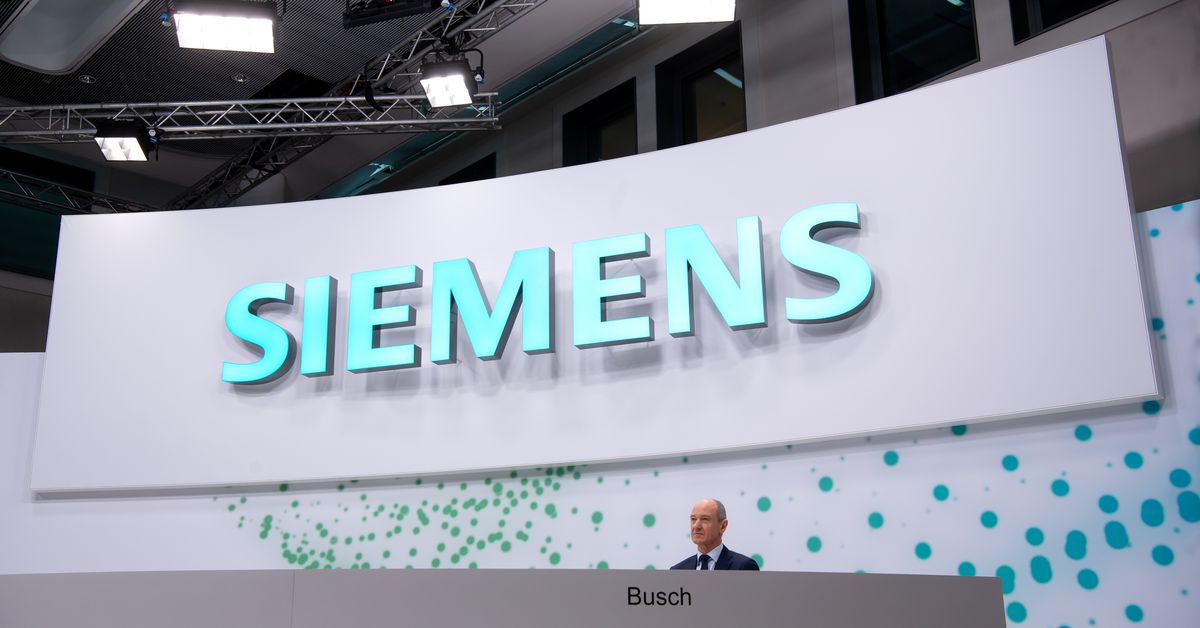ZURICH, May 12 (Reuters) – Siemens (SIEGn.DE) will quit the Russian market due to the war in Ukraine, it said on Thursday, taking a 600 million euro ($630 million) hit to its business during the second quarter, with more costs to eat.
The German industrial and technology group became the latest multinational to announce losses linked to its decision to leave Russia following the Feb. 24 invasion, which Moscow calls a “special military operation”.
Several companies, from brewers Anheuser-Busch InBev (ABI.BR) and Carlsberg to sportswear maker Adidas (ADSGn.DE), carmaker Renault and several banks have been counting the cost of suspending operations in or withdrawing from Russia. read more
Register now for FREE unlimited access to Reuters.com
Siemens Chief Executive Roland Busch described the conflict as a “turning point in history.”
“We, as a company, have clearly and strongly condemned this war,” Busch told reporters.
“We’re all moved by the war as human beings. And financial figures must take a back seat in the face of the tragedy. Nevertheless, like many other companies, we’re feeling the impact on our business.”
During the second quarter Siemens incurred 600 million euros in impairment and other charges mostly recorded in its train-making mobility business subsequent to sanctions on Russia, Siemens said.
Busch said further impacts were to be expected, mainly from non-cash charges related to the winding-down of legal entities, revaluation of financial assets and restructuring costs.
“From today’s perspective, we foresee further potential risks for net income in the low- to mid-triple-digit million range, although we can’t define an exact timeframe,” he added.
Chief Executive Officer (CEO) of German industrial conglomerate Siemens, Roland Busch attends the virtual annual shareholder meeting in Munich, Germany, February 10, 2022. Sven Hoppe/Pool via REUTERS
Siemens shares dropped 5% in early trading as the company missed analysts’ expectations for second-quarter profit.
The Munich company employs 3,000 people in Russia, where it has been active for 170 years. It first went to Russia in 1851 to deliver devices for the telegraph line between Moscow and St Petersburg.
The country now contributes about 1% of Siemens’ annual revenue, with most of the present day business concerned with maintenance and service work on high-speed trains.
Its sites in Moscow and St Petersburg are now being ramped down, Busch said.
The costs weighed on Siemens’ second quarter earnings, with net income halved to 1.21 billion euros ($1.27 billion), missing analysts’ forecasts of 1.73 billion.
The company posted industrial profit of 1.78 billion euros, down 13% from a year earlier and also missing forecasts.
But demand stayed robust, with orders 22% higher on a comparable basis and revenue 7% higher.
As a result it confirmed its full-year outlook, with comparable revenue growth of 6% to 8% for the full year, with a downturn in mobility expected to be compensated by faster growth in factory automation and digital buildings.
JP Morgan analyst Andreas Willi described the results as “mixed with strong orders, industry leading growth in automation and strong cash conversion.”
($1=0.9508 euros)
Register now for FREE unlimited access to Reuters.com
Reporting by John Revill; Editing by Kim Coghill and Clarence Fernandez
Our Standards: The Thomson Reuters Trust Principles.
.
